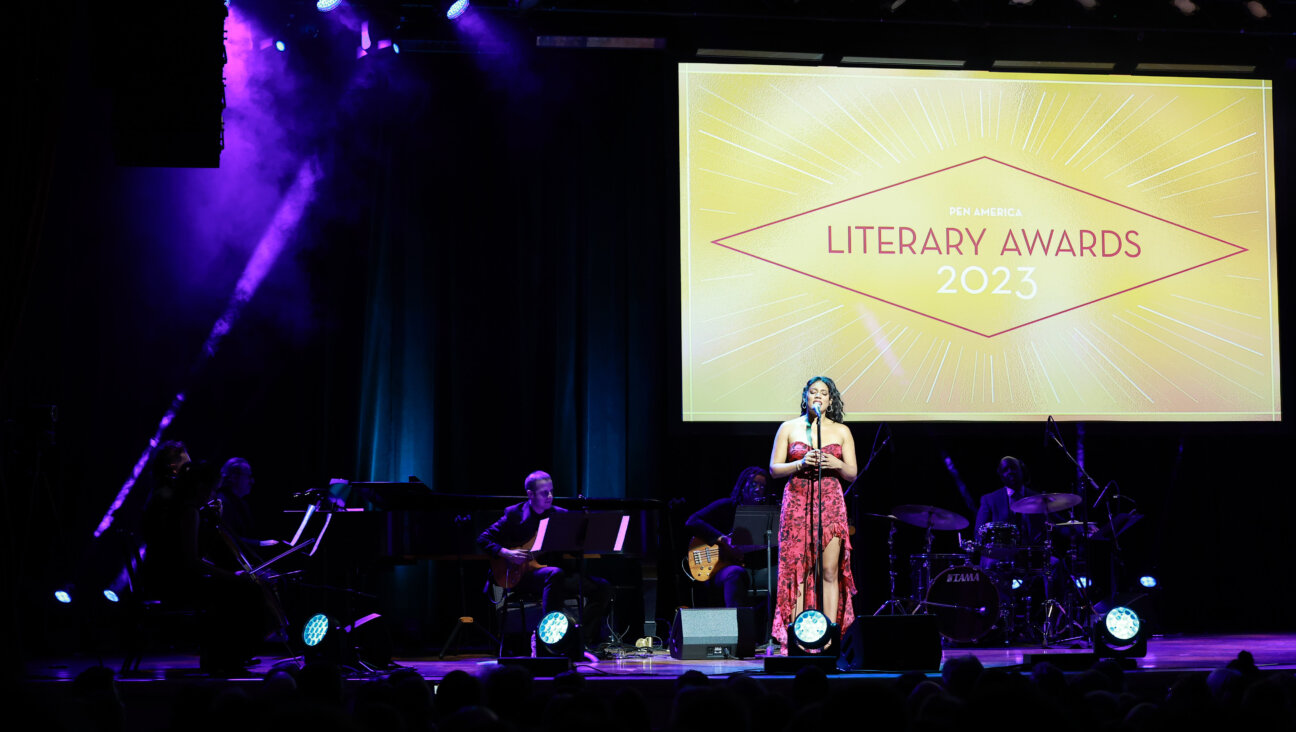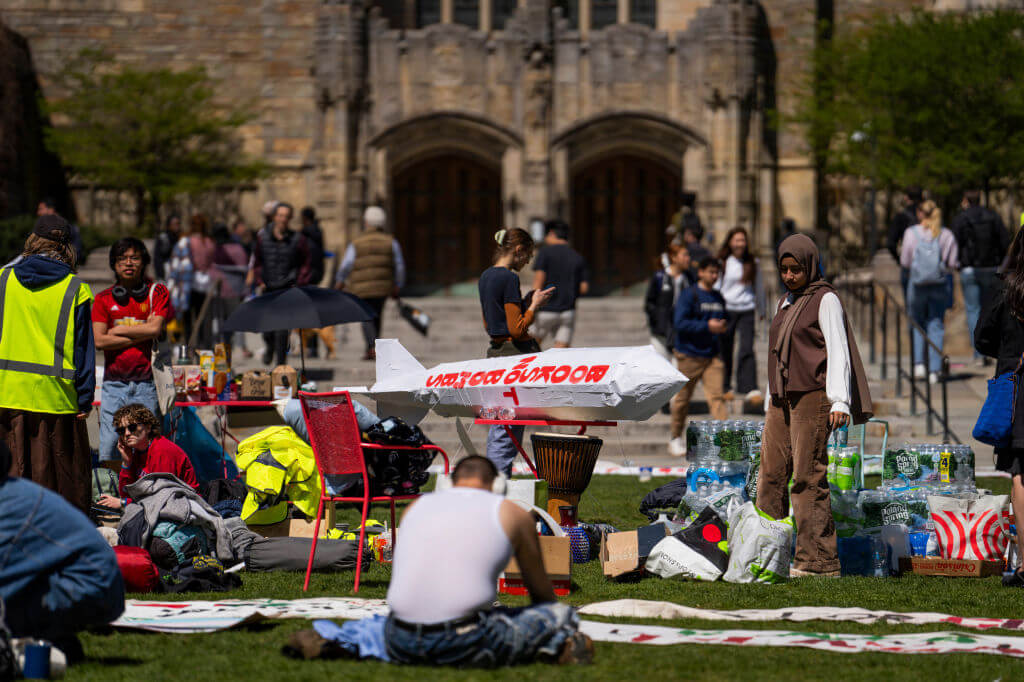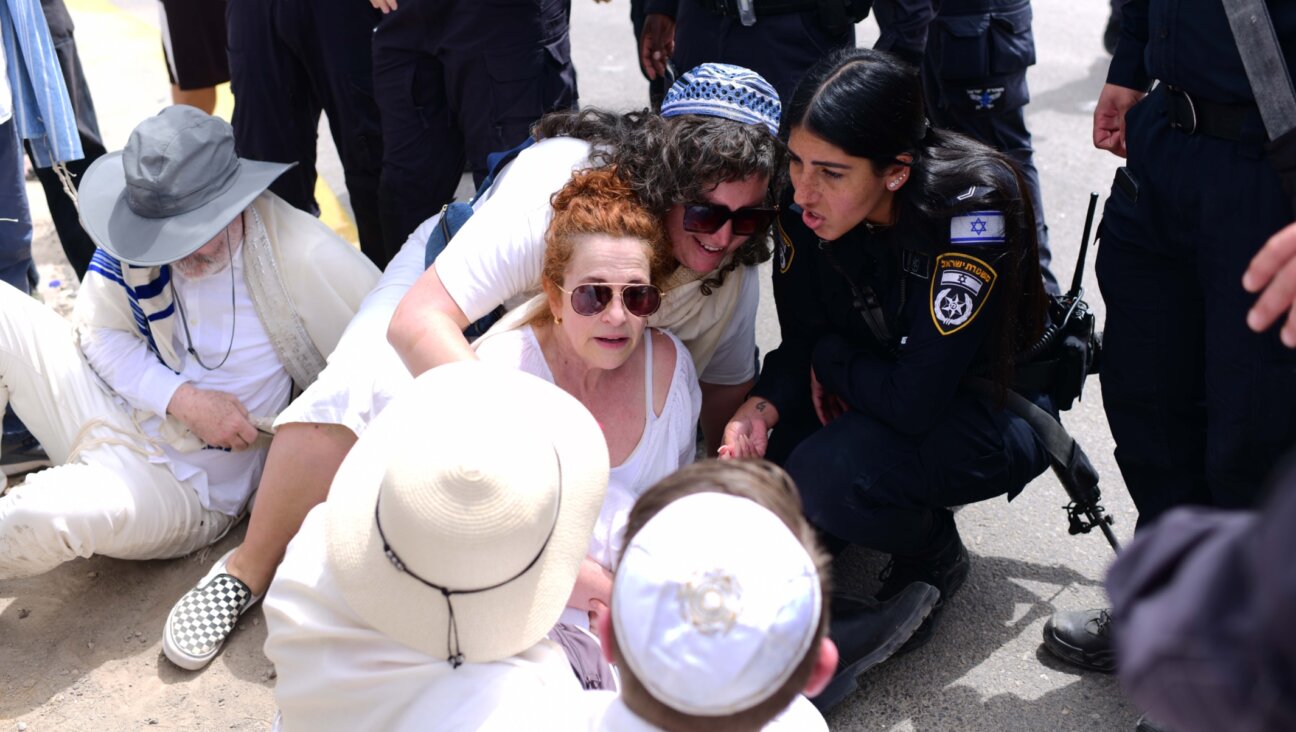Israeli Dance Invades Lincoln Center Fest
The Lincoln Center Festival, celebrating its 10th anniversary this year, showcases globally diverse artistic troupes that have distinctive performance styles. In keeping with that ideal, Nigel Redden, the festival’s director, has booked performances by three contemporary Israeli dance companies that represent the vivid intensity and cerebral creativity emerging from Israel’s choreographers. On July 12, Emanuel Gat presents his sensually provocative take on two familiar pieces of music: Schubert’s “Winterreise” and Stravinsky’s “The Rite of Spring.” The internationally acclaimed Batsheva Dance Company returns July 20 with the visually stunning “Telophaza.” And July 27, the group Yasmeen Godder and the Bloody Bench Players premieres its gritty take on media imagery, “Strawberry Cream and Gunpowder.”
“Telophaza,” choreographed by Batsheva’s artistic director, Ohad Naharin, takes its name from one of biology’s four stages of cell division. “‘Telophaza’ is a playground where lightness is a virtue,” Naharin said in an interview with the Forward. And he claims that the title shouldn’t be taken too literally. But like the constant motion of mitosis witnessed under the scrutiny of a microscope, “Telophaza” whips up a whirlwind of energetic physicality with a cast of 40 talented dancers and their swiveling hips and undulating torsos. In addition, there are four video screens with close-ups of the dancers’ bodies, and a taped accompaniment by 14 musical groups that range from the Bollywood Brass Band to Bruce Springsteen to Ali Hassan Kuban. The mood of the virtuosic piece varies from weighty to giddy; in choreographic terms, the pleasure is akin to a visually kinetic kaleidoscope.
Naharin made it clear that he’s not aiming for sensory overload, despite the amount of onstage action. “There is never any way we can see everything,” he said. “The experience of witnessing a performance and being engaged in it has nothing to do with the ability to see it all. Even if you look at a painting for a very long time, you can always miss details and when you look at it again you can see things you haven’t seen before.” Naharin likes a spectacle, but he also likes to keep the audience active in its visceral and mental reactions. “The structure of the composition offers fruit for the imagination,” he added.
Emanuel Gat, who didn’t start dancing until the age of 23, has made up for lost time with his impassioned dancing and choreography. In “Winter Voyage,” Gat has created a male duet (which he dances with pantherlike prowess) set to three songs from “Winterreise,” a meditation on lost love. Dressed in Dervish-like tunics, the men pace and swivel, while attracting and repelling each other like magnetic poles. At times the choreography runs counterpoint to the music, and the physical gravitas of the movement lends an animalistic eroticism. The program concludes with Gat’s “The Rite of Spring” in which three men and two women, all of them dressed in black, play a dangerously seductive game of musical chairs in search of a “chosen one.” Using a Cuban salsa dance called “Rueda de Casino” (literally “wheel of the casino”), the dancers couple and part, always treading on a blood-red carpet.
Jerusalem-born Yasmeen Godder, a graduate of New York University’s Tisch School of the Arts, doesn’t shy away from a boldly charged, in-your-face political smackdown. (This makes her a rarity in the dance world.) The title of her work, “Strawberry Cream and Gunpowder,” refers to images in the media that are simultaneously horrific and alluring. “I was looking at how these images were repeating themselves and trying to challenge their disturbing sense of familiarity,” Godder said. The piece conjures up a chillingly hypnotic parallel world realized by her ensemble of dancer-actors, dressed simply in jeans, T-shirts, skirts and panties and using only clumps of grass and a checkpoint barrier as props.
For inspiration, Godder chose photographs of victims and victimizers at the height of shock and conflict in the Middle East. A young girl tries to revive a dead man. A woman stifles her sister’s scream. A soldier’s aimed gun trembles. Bodies are forced apart and then united. Arms are crossed in apathy. A man lays motionless, face down, while a woman kneeling at his side stares vacantly into space. Godder takes these freeze frames and connects them theatrically, maintaining fluidity as one image dissolves into another. The numbness of two-dimensional iconography becomes sharp three-dimensional pain.
How does her experience as an Israeli inform this piece? “This is what I wanted to question — like holding up a mirror,” Godder said. “I wanted the images from the photographs to be tested on ourselves — to see how we take them in and who we are inside of them. Newspaper photos bring up a spectrum of emotions and thoughts including shame and domination, which can often be pushed aside because of the discomfort they raise. I wanted to view it through our bodies by placing it onstage and not escaping from it.”
Joseph Carman writes about the performing arts and is the author of “Round About the Ballet” (Limelight Editions, 2004).

I hope you appreciated this article. Before you go, I’d like to ask you to please support the Forward’s award-winning journalism this Passover.
In this age of misinformation, our work is needed like never before. We report on the news that matters most to American Jews, driven by truth, not ideology.
At a time when newsrooms are closing or cutting back, the Forward has removed its paywall. That means for the first time in our 126-year history, Forward journalism is free to everyone, everywhere. With an ongoing war, rising antisemitism, and a flood of disinformation that may affect the upcoming election, we believe that free and open access to Jewish journalism is imperative.
Readers like you make it all possible. Right now, we’re in the middle of our Passover Pledge Drive and we still need 300 people to step up and make a gift to sustain our trustworthy, independent journalism.
Make a gift of any size and become a Forward member today. You’ll support our mission to tell the American Jewish story fully and fairly.
— Rachel Fishman Feddersen, Publisher and CEO
Join our mission to tell the Jewish story fully and fairly.
Only 300 more gifts needed by April 30























